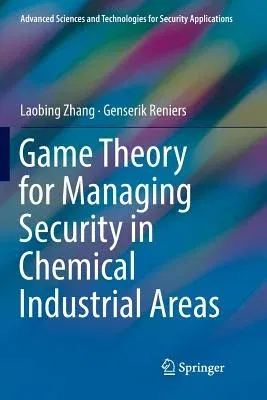Laobing Zhang
(Author)Game Theory for Managing Security in Chemical Industrial Areas (Softcover Reprint of the Original 1st 2018)Paperback - Softcover Reprint of the Original 1st 2018, 22 December 2018

Qty
1
Turbo
Ships in 2 - 3 days
In Stock
Free Delivery
Cash on Delivery
15 Days
Free Returns
Secure Checkout
Part of Series
Advanced Sciences and Technologies for Security Applications
Print Length
157 pages
Language
English
Publisher
Springer
Date Published
22 Dec 2018
ISBN-10
3030064735
ISBN-13
9783030064730
Description
Product Details
Authors:
Book Edition:
Softcover Reprint of the Original 1st 2018
Book Format:
Paperback
Country of Origin:
NL
Date Published:
22 December 2018
Dimensions:
23.39 x
15.6 x
0.94 cm
ISBN-10:
3030064735
ISBN-13:
9783030064730
Language:
English
Location:
Cham
Pages:
157
Publisher:
Weight:
249.48 gm

